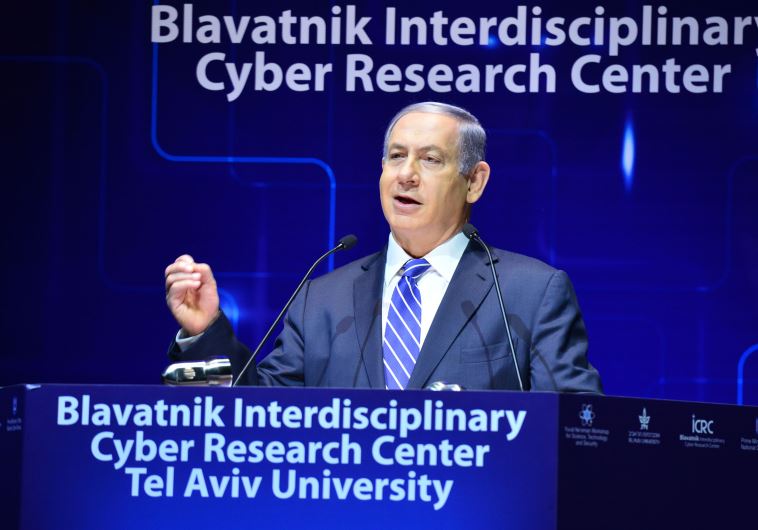The POSTman Knocks Twice: On paranoia and psychobabble:Cheap shots at Bibi
Netanyahu has real enemies who would gladly destroy him politically. Some are within his own party. Within his own cabinet.
 Prime Minister Benjamin Netanyahu addresses a cyber security conference at Tel Aviv University(photo credit: KOBI GIDEON/GPO)
Prime Minister Benjamin Netanyahu addresses a cyber security conference at Tel Aviv University(photo credit: KOBI GIDEON/GPO)